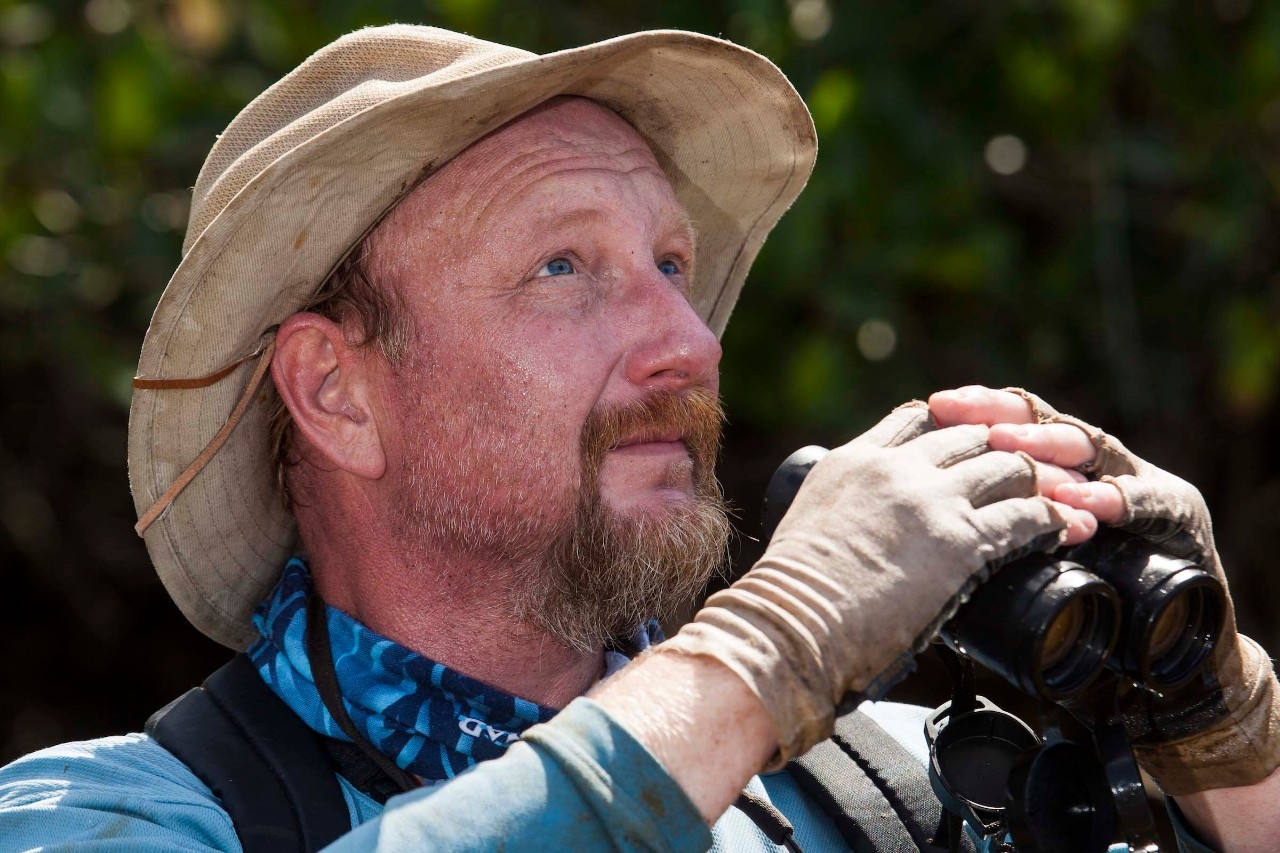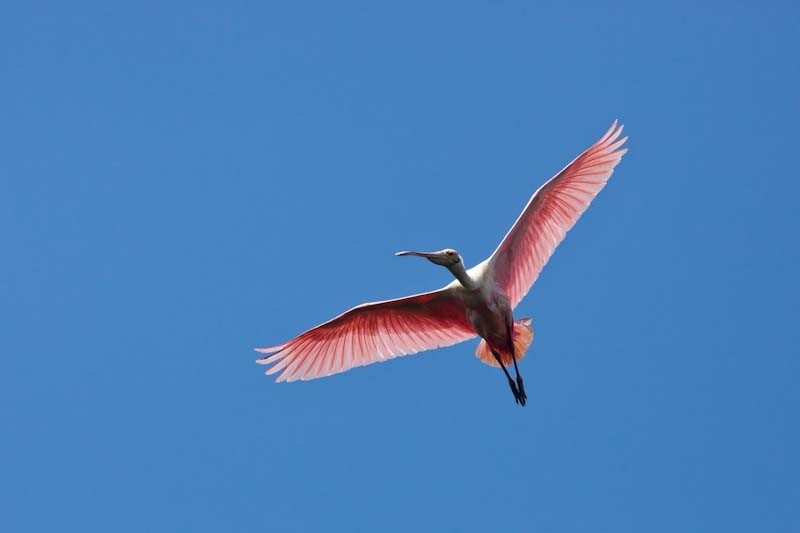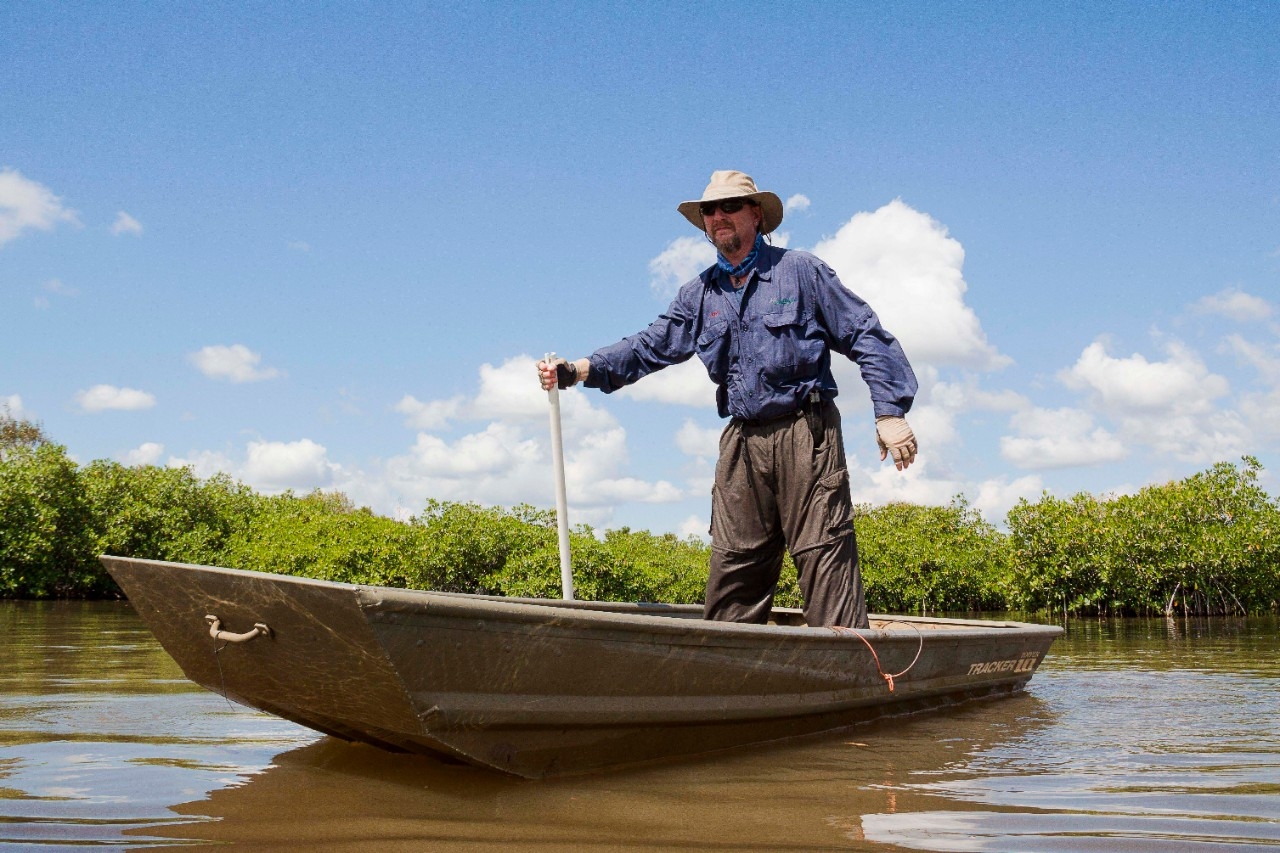



Have you ever entertained the thought of what animal you would be if given the chance? A lion, maybe, or perhaps a horse? How about a sheepshead minnow?
No, the sheepshead minnow is probably not the first animal that pops into your head—that is, unless you’re Dr. Jerry Lorenz (’87). Lorenz, unlike most of us, knows that the sheepshead minnow tolerates whatever is thrown at it and can live in either freshwater or saltwater. He takes that tenacity to heart.
“I filled a niche that nobody else wanted,” Lorenz said. “And I’m thriving in it, so that minnow is probably what I identify with the most.”
When Lorenz started at NKU, though, his scientific interest was humans, not tiny fish. Or so he thought.

“I initially started out as pre-med,” Lorenz said. “And I quickly realized I just don’t want to deal with people’s problems every day. I don’t have the mentality for handling patients every day, so I decided to go for the straight biology degree.”
Lorenz jumped paths to begin a lifelong journey in biology. And the success he found in the field is due, in large part, to the mentorship of his professors.
“The mentoring that I got from the cadre of professors at Northern was just fabulous,” says Lorenz. “I really felt I could just stroll into the offices of my professors and advisors. We were friends, and that was a big deal. I don’t think a lot of universities get a lot of that one-on-one attention.”
Years later, while Lorenz was pursuing his graduate degree at Miami University, one of his NKU professors, Dr. Thomas Rambo, asked if he would accompany him to Costa Rica as a field assistant. Living out of a tent under a shelter in the middle of the forest for three weeks, Lorenz’s desire to work in field ecology was solidified.
“I fell in love with it,” Lorenz said. “It was something I really just wanted to continue doing. I still go out into Everglades National Park, in some of the most hostile environments for humans, and do bird and fish surveys. It’s just something I really enjoy, being out there where probably no human being has ever been before.”
He’s not fearless—he was initially terrified of encountering jaguars in the dark, though today he’d love to spot one of the big cats. But Lorenz became accustomed to field work. Eventually he made his way to Florida, where he now studies spoonbills as the director of research for Audubon Florida.

Why spoonbills?
For starters, they are beautiful birds, but according to Lorenz they are also “the canary in the coal mine.” Spoonbills have served as strong indicators of what is going on in the world, and recently their behaviors have changed, with increasing numbers nesting inland and north. With more than 3,000 banded spoonbill chicks and 20 captured adults, Lorenz has expert knowledge of spoonbill activity.
He doesn’t have to worry about jaguars in the Sunshine State, but Lorenz has run into Florida panthers twice, saying, "The sighting of such a rare and magnificent animal delighted me." He's also accidentally stepped on alligators a few times, burned his corneas (he recommends wearing sunglasses) and given himself DEET poisoning. But what brings him fear these days is actually smaller than a dime.
“The only time in the Everglades where I was actually afraid for my life … was the mosquitoes,” Lorenz said. “They got so bad one day in September of 1996. I’ll never forget—I thought that they were going to literally kill me. I was wearing a white long-sleeved shirt and the only thing I could see was black. When I ran my hand down that sleeve, it just turned red from all the blood that these things were taking from me.”
Scary? Sure, but this is Lorenz’s dream job, and it has been for 30 years.
“I feel like I’m one of the luckiest people because of the things I get to do,” Lorenz said. “I go places that nobody is allowed to go. No one else is allowed to go on those islands, and the things I see—the birds, the animals and the bay itself, which, when it’s healthy, is crystal-clear water—are spectacular.

“Every time I go out, I see something that I may have seen a hundred times, but I see it in a different light. I take notice of something. I saw a bald eagle eating a spoonbill chick, and that bald eagle about hit me in the head when I surprised it. There are a lot of stories like that.”
He owes a great deal of finding his special path to NKU’s biology department, and he thinks they still have the right attitude.
“I know they passed on a legacy of, this is how we treat our students and we are a learning school,” Lorenz said. “I know a little bit about everything, and that’s what the school teaches.”
Some days, Lorenz says, his work can be a “pain the butt,” but it’s always worth it. In fact, he hopes to continue it until his dying day.
“I don’t have any intention of doing anything else,” he says. “Every day, you realize how special the Florida Bay and the Everglades National Park are. It’s a dream job for those of us who want to be out there. Even when I retire, I don’t anticipate that I will stop working on this.”


